Shapes and Shades of the Quantum
Konrad Szymański
Centrum pre výskum kvantovej informácie SAV
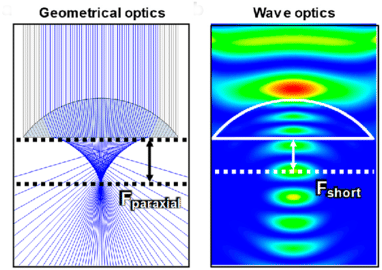
Lee, G. J. et al., Micromachines 2020.
Schrödinger idea: formulate wavelike properties mathematically, in analogy with optics. $$ i\hbar \frac{\partial \psi(x,y,t)}{\partial t}=\left(\frac{\partial^2 \psi}{\partial x^2}+\frac{\partial^2 \psi}{\partial y^2}+\frac{\partial^2 \psi}{\partial z^2}\right)+V \psi$$
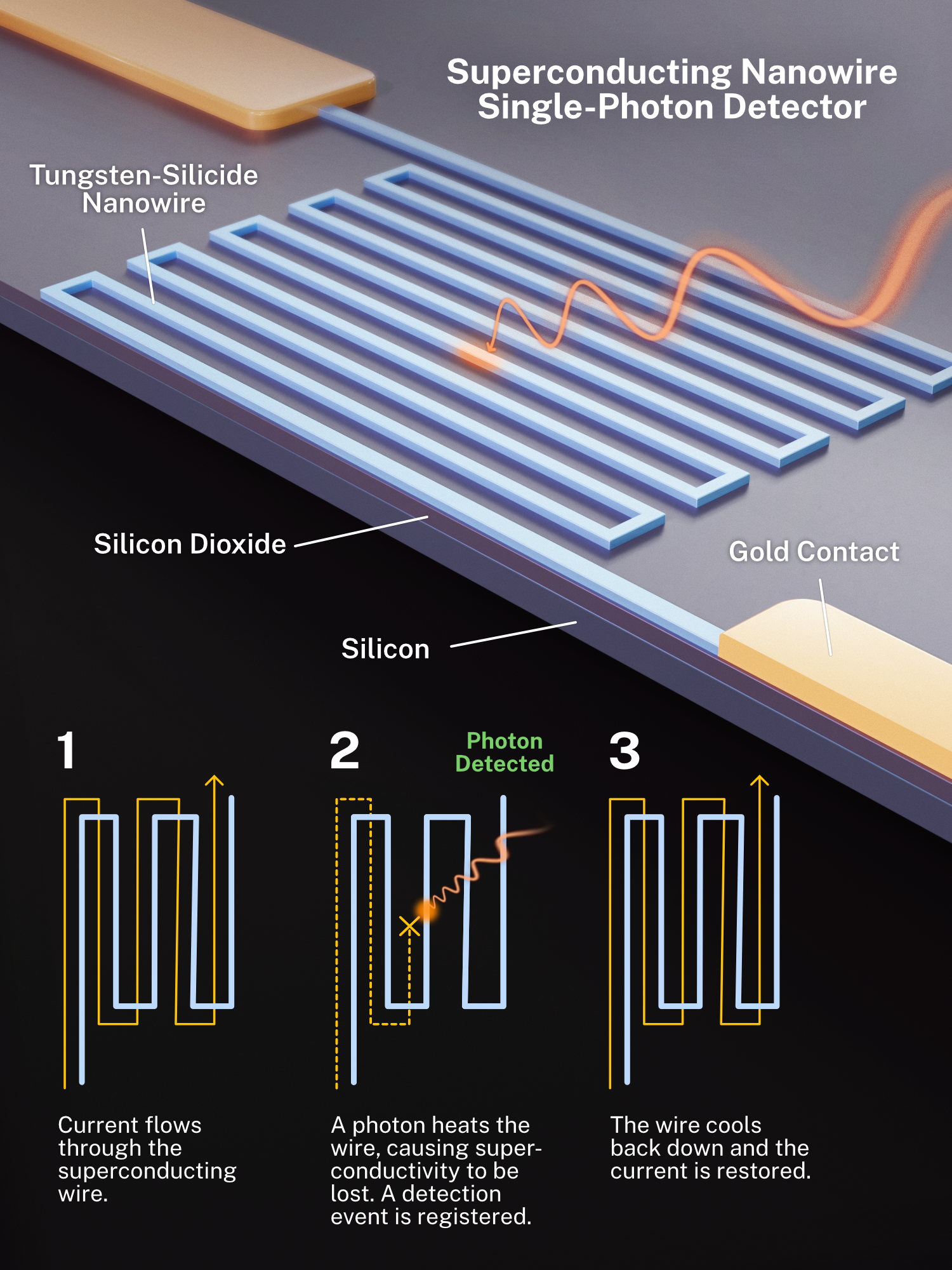
Everything in quantum is fundamentally random
When measuring tiniest particles, no one can predict the exact outcomes – only the statistics.
What is quantum mechanics?
Waves? Particles?
In classical world, randomness can be ruled out with enough precision.
If we know the initial velocity of the coin, we can predict on which side it will land.
.jpg)
Essence of probability theory: winning games
- Fair coin: on average, payoff is $$( {\cred 4~\text{EUR}})\times 50\%+({\cblue -2 ~\text{EUR}})\times 50\%=1~\text{EUR}$$
- Rigged coin, heads with $25 \%$: $$({\cred 6~\text{EUR}})\times 25\%+({\cblue -4~\text{EUR}})\times 75\% =-0.50~\text{EUR}$$
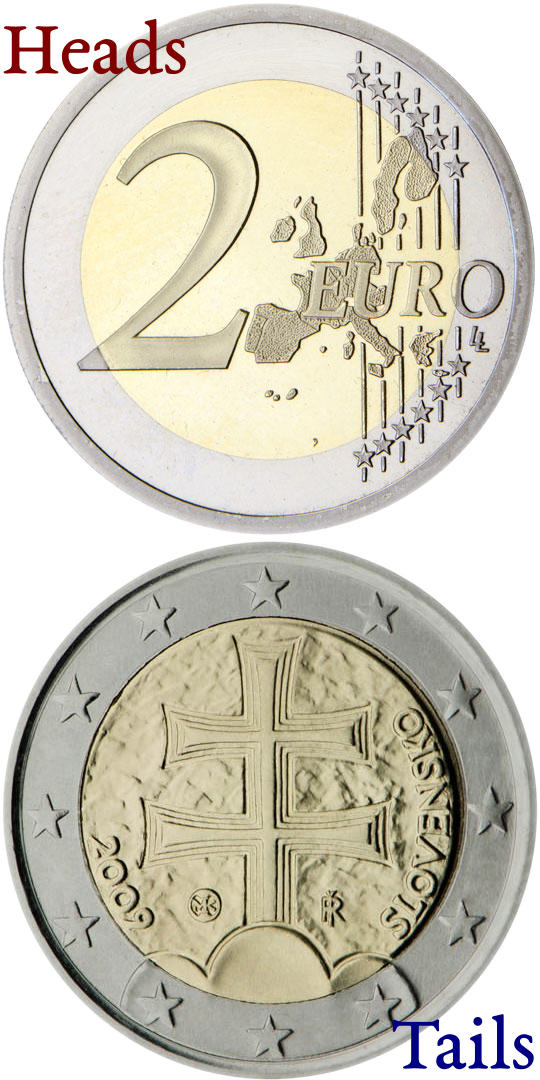
Individual photons can be easily produced…
… and questions about them have random answers.
… but it not a coin!
… but not a coin!
It can go back!
Two-player coordination game
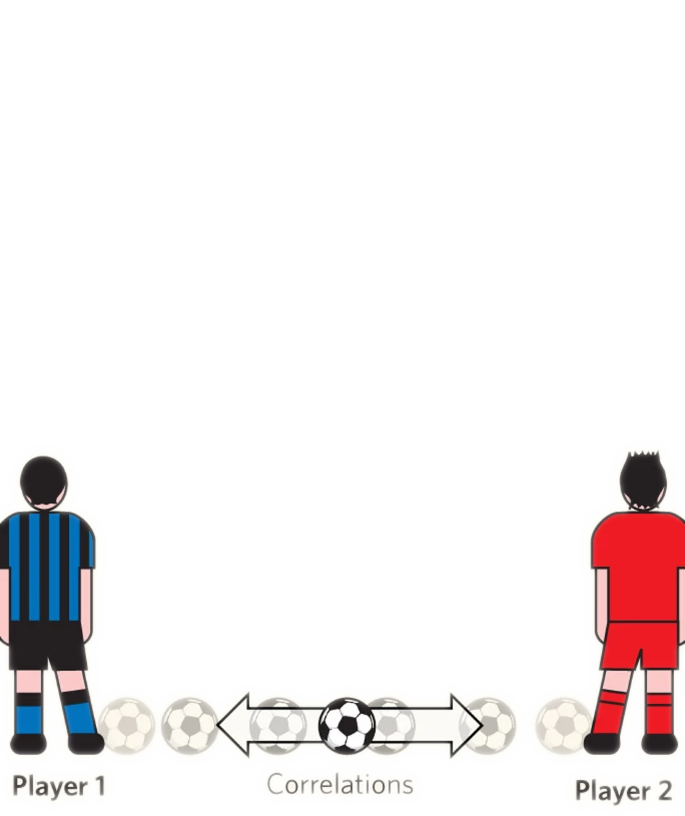
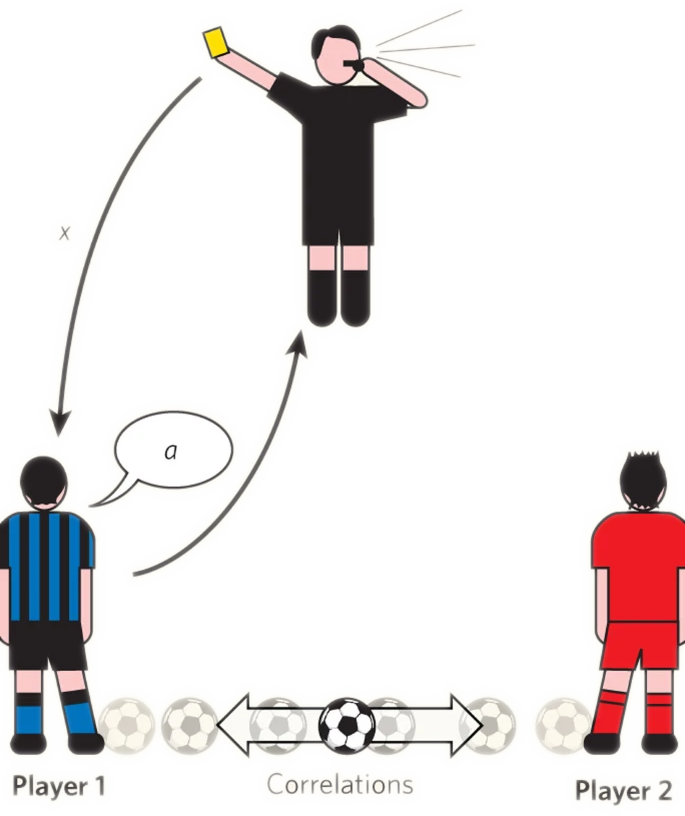
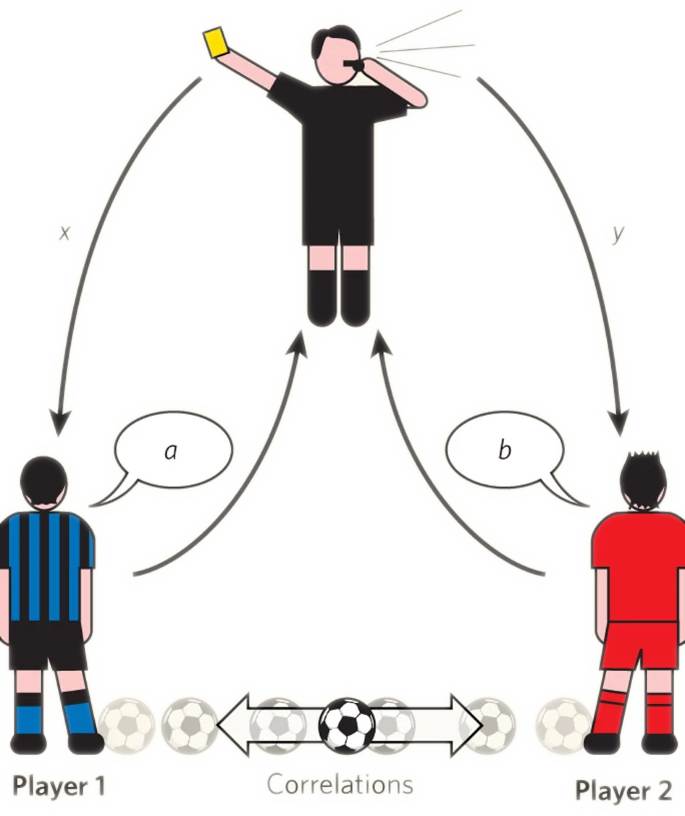


A. Winter, Nature 2010
- Strategy coordination.
- Referee tosses coin $x=\text{H}$(eads) or $\text{T}$(ails) to Player 1, and asks for number $\cblue a=0,1,2,\ldots$.
- Referee tosses coin $y=H~\text{or}~T$ to Player 2, and asks for number $\cred b=0,1,2,\ldots$.
- If both ${\cblue x}={\cred y}=H$(eads), players win $1~\text{EUR}$ if $${\cblue a}+{\cred b}=1,3,5,\ldots~\text{(odd numbers)}.$$
- Otherwise, players win $1~\text{EUR}$ if $${\cblue a}+{\cred b}=0,2,4,\ldots~\text{(even numbers)}.$$
Best strategy: $0.75~\text{EUR}$ per round, on average.
Quantum strategy: $\approx 0.85~\text{EUR}$ per round, on average.
Entangled photon source @ RCQI

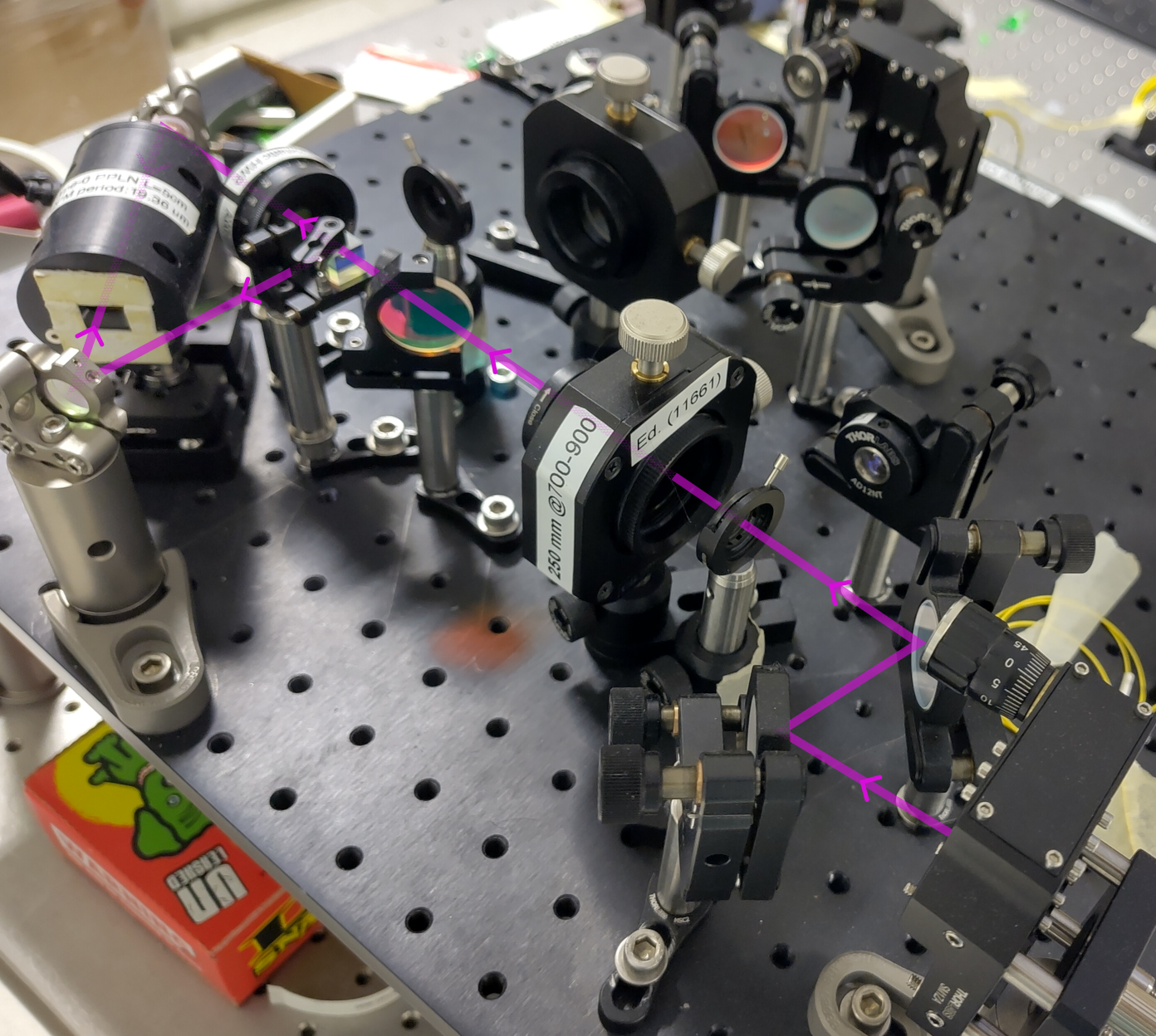
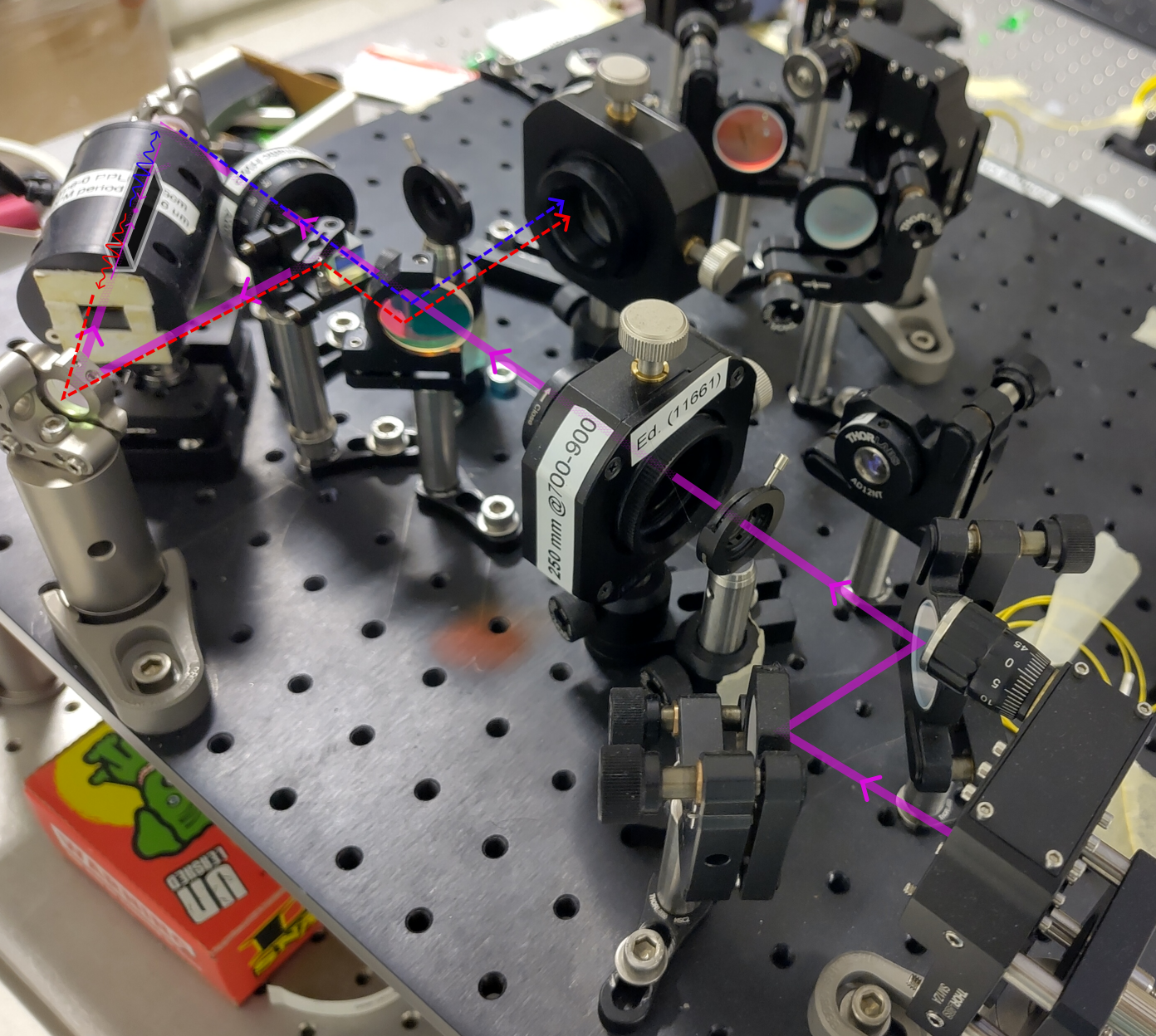
Entangled photons give perfect correlation.
Recap:
- Quantum mechanics is random, in an unusual way.
- Application: perfect cryptography via shared randomness.
- Mathematics: average payoffs in random games.
What if we can play more than one game?
Payoff $P = ~$(average money gain per round),
what are possible pairs $(P,P')$?
Projections of many-dimensional sets
(just like shadows are projections of 3D sets onto a plane)
3 games: projections of many-dimensional sets onto 3D
(qutrit: 8 dimensions, 2 qubits: 15 dimensions…)
Summary
- Quantum mechanical measurements are random…
(no one can predict them)
- … but there are constraints
(outcomes are correlated)
- Useful in cryptography: shared secrets that only some know.
